第66章 III(10)
But to justify this proposition, I must add that the injuries inflicted by over-medication are to a great extent masked by disease.
Dr. Hooker believes that the typhus syncopatia of a preceding generation in New England "was often in fact a brandy and opium disease." How is a physician to distinguish the irritation produced by his blister from that caused by the inflammation it was meant to cure? How can he tell the exhaustion produced by his evacuants from the collapse belonging to the disease they were meant to remove?
Lastly, medication without insuring favorable hygienic conditions is like amputation without ligatures. I had a chance to learn this well of old, when physician to the Broad Street district of the Boston Dispensary. There, there was no help for the utter want of wholesome conditions, and if anybody got well under my care, it must have been in virtue of the rough-and-tumble constitution which emerges from the struggle for life in the street gutters, rather than by the aid of my prescriptions.
But if the materia medica were lost overboard, how much more pains would be taken in ordering all the circumstances surrounding the patient (as can be done everywhere out of the crowded pauper districts), than are taken now by too many who think they do their duty and earn their money when they write a recipe for a patient left in an atmosphere of domestic malaria, or to the most negligent kind of nursing! I confess that I should think my chance of recovery from illness less with Hippocrates for my physician and Mrs. Gamp for my nurse, than if I were in the hands of Hahnemann himself, with Florence Nightingale or good Rebecca Taylor to care for me.
If I am right in maintaining that the presumption is always against the use of noxious agents in disease, and if any whom I might influence should adopt this as a principle of practice, they will often find themselves embarrassed by the imperative demand of patients and their friends for such agents where a case is not made out against this standing presumption. I must be permitted to say, that I think the French, a not wholly uncivilized people, are in advance of the English and ourselves in the art of prescribing for the sick without hurting them. And I do confess that I think their varied ptisans and syrups are as much preferable to the mineral regimen of bug-poison and ratsbane, so long in favor on the other side of the Channel, as their art of preparing food for the table to the rude cookery of those hard-feeding and much-dosing islanders.
We want a reorganized cuisine of invalidism perhaps as much as the culinary, reform, for which our lyceum lecturers, and others who live much at hotels and taverns, are so urgent. Will you think I am disrespectful if I ask whether, even in Massachusetts, a dose of calomel is not sometimes given by a physician on the same principle as that upon which a landlord occasionally prescribes bacon and eggs,--because he cannot think of anything else quite so handy? I leave my suggestion of borrowing a hint from French practice to your mature consideration.
I may, however, call your attention, briefly, to the singular fact, that English and American practitioners are apt to accuse French medical practice of inertness, and French surgical practice of unnecessary activity. Thus, Dr. Bostock considers French medical treatment, with certain exceptions, as "decidedly less effective" than that of his own country." Mr. S. Cooper, again, defends the simple British practice of procuring union by the first intention against the attacks of M. Roux and Baron Larrey. [Cooper's Surg.
Diet. art. "Wounds." Yet Mr. John Bell gives the French surgeons credit for introducing this doctrine of adhesion, and accuses O'Halloran of "rudeness and ignorance," and "bold, uncivil language," in disputing their teaching. Princ. of Surgery, vol. i. p. 42.
Mr. Hunter succeeded at last in naturalizing the doctrine and practice, but even he had to struggle against the perpetual jealousy of rivals, and died at length assassinated by an insult.] We have often heard similar opinions maintained by our own countrymen. While Anglo-American criticism blows hot or cold on the two departments of French practice, it is not, I hope, indecent to question whether all the wisdom is necessarily with us in both cases.